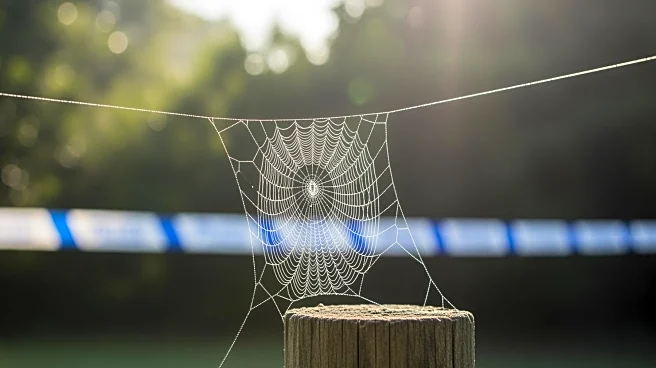What's Happening?
Martha White, the granddaughter of E.B. White, author of 'Charlotte's Web,' has publicly criticized the Department of Homeland Security (DHS) for naming an immigration crackdown operation 'Operation Charlotte's Web.' The operation, conducted in Charlotte,
North Carolina, aims to target individuals deemed as criminal illegal aliens. Martha White expressed that her grandfather would not have supported the use of his book's title for such an operation, highlighting the contrast between the book's themes of kindness and the fear-inducing tactics of the raids. The operation has led to numerous arrests and has sparked criticism from local politicians and community groups who argue that the raids involve racial profiling and violate residents' rights.
Why It's Important?
The criticism from Martha White underscores the ongoing debate over immigration enforcement tactics in the U.S. The use of a beloved children's book title for a controversial operation highlights the tension between federal immigration policies and community values. This situation reflects broader societal concerns about the balance between national security and civil liberties. The operation's impact on local businesses and communities, as well as the public backlash, illustrates the divisive nature of immigration policy under the Trump administration. The controversy may influence public opinion and policy discussions regarding immigration enforcement and the rights of immigrants.
What's Next?
The operation in Charlotte is part of a larger national effort by the Trump administration to enforce immigration laws. As the operation continues, it is likely to face further scrutiny and opposition from community leaders and civil rights organizations. The DHS may need to address the criticism and consider the implications of using culturally significant references in their operations. The ongoing debate may lead to calls for policy reform and increased transparency in immigration enforcement practices.
Beyond the Headlines
The use of 'Charlotte's Web' in the operation's name raises ethical questions about the appropriation of cultural works for political purposes. It highlights the potential for literature and art to be co-opted in ways that may contradict their original messages. This incident may prompt discussions about the role of cultural heritage in shaping public policy and the importance of preserving the integrity of artistic works.















